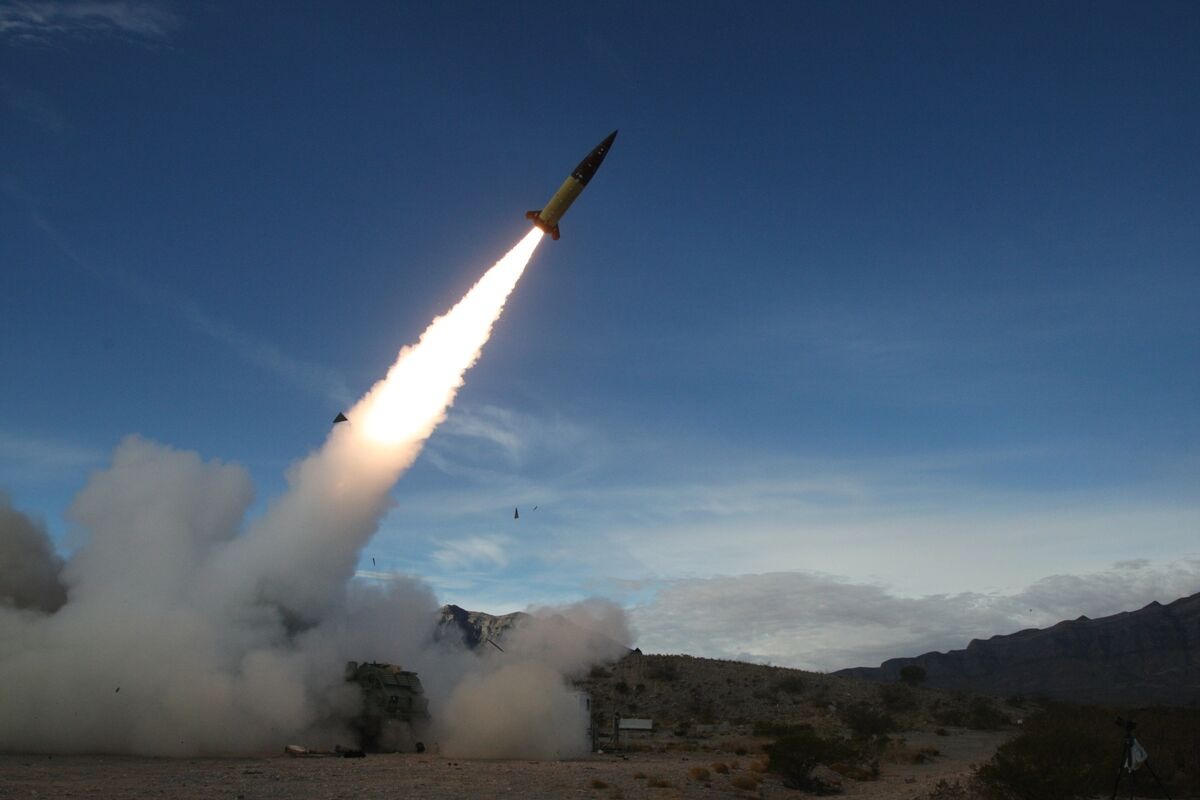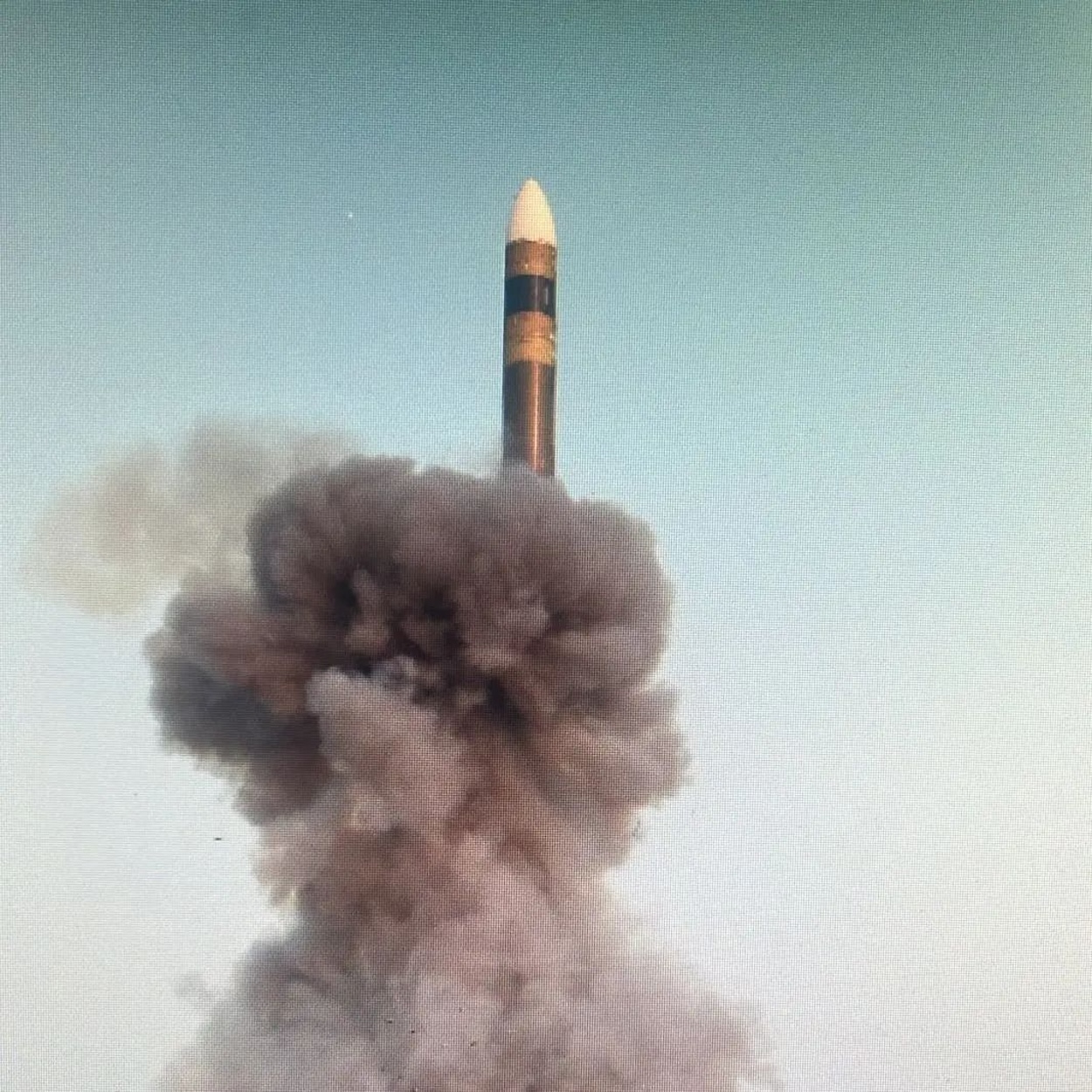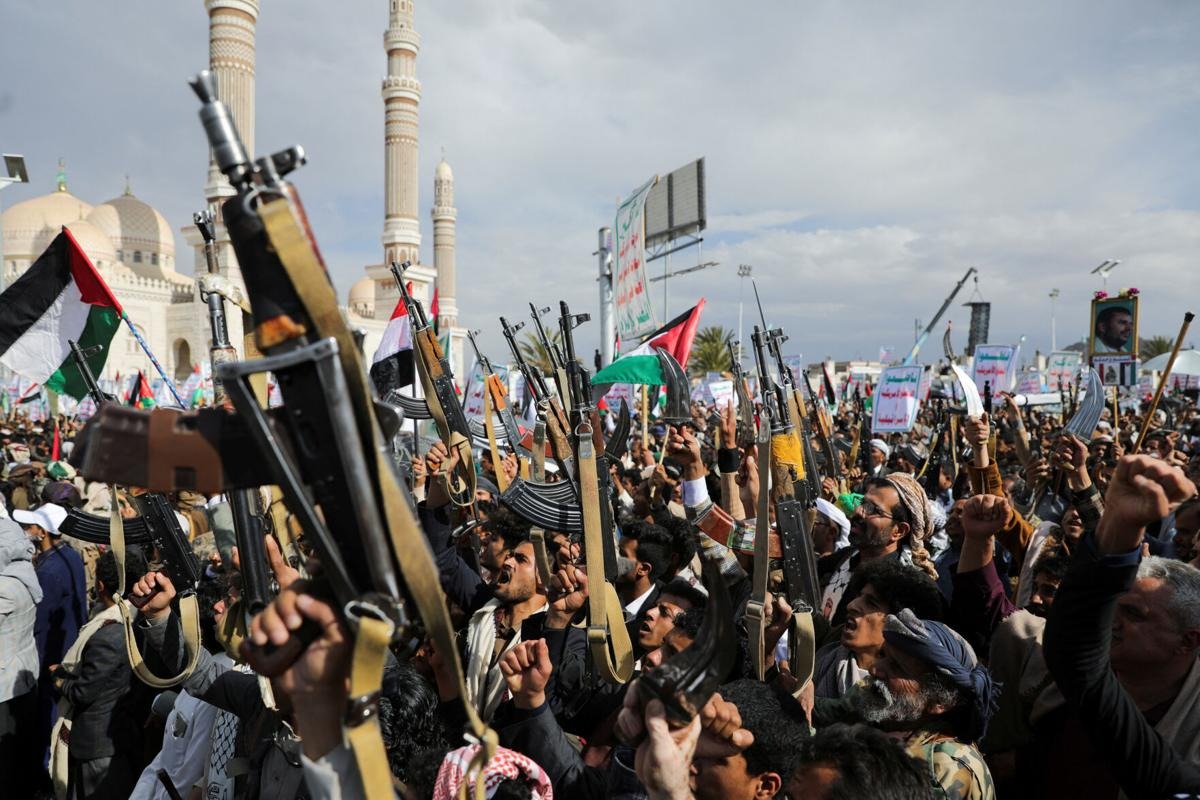Reports from Russia’s state media on Thursday suggest that Yemen’s Houthi rebels have announced the acquisition of a new hypersonic missile.
This revelation comes amidst ongoing concerns regarding their attacks on shipping lanes in the Red Sea and surrounding regions, particularly against the backdrop of Israel’s conflict with Hamas in the Gaza Strip.
According to the state-run RIA Novosti news agency, an unnamed official made this claim, although no substantiating evidence was provided.
The emergence of this purported hypersonic missile adds a new dimension to the conflict, raising questions about the rebels’ capabilities and intentions in the region.

Yemen’s Houthis Missile with Longer Range (Credits: Bloomberg.com)
The timing of this announcement is significant, given the context of Moscow’s assertive stance in international affairs, notably its ongoing conflict with Ukraine.
As Russia maintains a counter-Western foreign policy approach, developments such as this alleged missile acquisition underscore the complexities of the geopolitical landscape in the Middle East and beyond.
The implications of the Houthi rebels possessing a hypersonic missile are far-reaching. Such advanced weaponry could potentially threaten maritime security in vital waterways like the Red Sea, impacting global trade and shipping routes.
Moreover, it introduces new dynamics into regional conflicts, heightening tensions and prompting concerns among neighboring states and international stakeholders.
The absence of concrete evidence accompanying the announcement raises skepticism about the accuracy and credibility of the claim.
However, regardless of its veracity, the rebels’ mere assertion of possessing such advanced military technology underscores the evolving nature of modern warfare and the proliferation of sophisticated armaments among non-state actors.
For Yemen, already plagued by years of conflict and humanitarian crises, the prospect of increased militarization further complicates efforts to achieve stability and peace.

Yemen’s Houthis Missile (Credits: Fox News)
The international community, including key stakeholders like the United Nations and regional powers, must closely monitor the situation and work towards diplomatic solutions to mitigate the risk of escalation and violence.
In the broader context of geopolitical dynamics, the Houthi rebels’ alleged acquisition of a hypersonic missile adds another layer of complexity to the already volatile situation in the Middle East.
It underscores the need for robust diplomacy, conflict resolution mechanisms, and arms control initiatives to address the root causes of instability and prevent further escalation of tensions.
As the situation continues to unfold, policymakers and analysts must carefully assess the implications of these developments on regional security and global stability.
Effective communication, cooperation, and diplomatic engagement will be essential to navigate the challenges posed by the proliferation of advanced weaponry and the ongoing regional conflicts.























